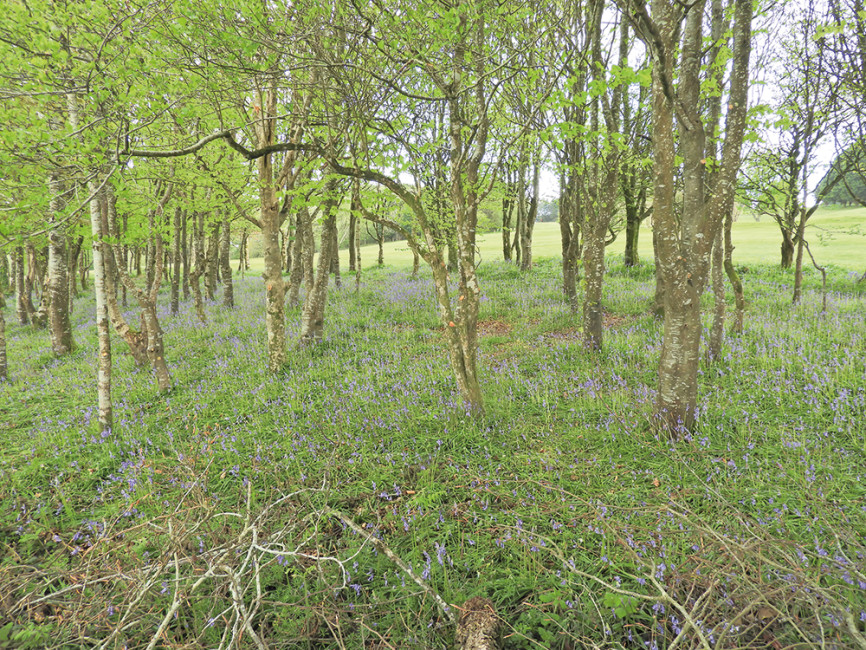Government introduces new Environment Bill

The government has introduced an Environment Bill to Parliament to tackle climate change. It is said to help ensure that we maintain and improve our environmental protections as we leave the EU. Measures will be introduced to improve air and water quality, tackle plastic pollution and restore habitats so plants and wildlife can thrive.
Legislation will also create, legally-binding environmental improvement targets. A new independent Office for Environmental Protection will be established to scrutinise environmental policy and law, investigate complaints and take enforcement action against public authorities, if necessary, to uphold environmental standards. The office's powers will cover all climate change legislation and hold the government to account on its commitment to reach net zero emissions by 2050.
The Bill has many points to it, but perhaps the most important for our industry is how it will restore and enhance nature - through 'biodiversity net gain'. It will ensure that the new houses built are delivered in a way which protects and enhances nature, helping to deliver thriving natural spaces for local communities. It will also improve protection for our natural habitats in supporting a Nature Recovery Network by establishing Local Nature Recovery Strategies and giving communities a greater say in the protection of local trees.
Responding to publication of the Environment Bill, Woodland Trust CEO Darren Moorcroft said:
The emphasis being placed on nature-based solutions to climate change, and the fact there will now be legally binding targets as well as a duty to protect nature is a big step forward and something we welcome."

"We are also pleased to see legislation for street trees. The requirement for councils to consult local communities before they start felling programmes is a great result for the Woodland Trust and its supporters who have campaigned for this, although we are disappointed our calls for a National Tree Strategy to be enshrined in law have not materialised."
"Sufficient resources must be made available for delivery by national agencies, such as Natural England, and local authorities. Existing EU standards must also at least be maintained and where possible exceeded, and it is vital that the Environment Bill and the Agriculture Bill are strongly linked with a firm focus on rewarding land managers for delivering environmental public goods, like improved habitats for nature and flood alleviation. Increasing tree cover will be a key part of delivering these benefits and the Woodland Trust is, as always, ready to do its part through woodland creation projects such as the Northern Forest."
"It is also vital that there is genuine cross-government buy in and close cooperation with the devolved administrations because nature does not recognise national boundaries. If these things are put in place, then the Bill can genuinely drive a badly needed improvement in our environment."
Dr Sue Young, head of land use planning and ecological networks for The Wildlife Trusts, says:
"We're really pleased to see a commitment to creating local nature recovery strategies for the whole of England to support a Nature Recovery Network. It's very positive to hear that these will identify opportunity areas which show where action needs to be taken so that nature can recover."
"However, we are disappointed that major national infrastructure projects will not be subject to net gain. This means that the new legal requirement to make developers actively improve nature will not apply to the most damaging schemes. While we welcome the clauses strengthening the Natural Environment and Rural Communities Act - saying all public bodies must have regard to conservation and enhancement of biodiversity - we believe that this should also apply to national government when they decide on the planning of national infrastructure projects such as HS2.
"Additionally, there have been few guarantees on the independence, resourcing or the strong enforcement powers of the new watchdog, the Office for Environmental Protection. This must change if the Government's proposals are to effectively ensure the protection of the natural environment and meet the ambition needed to turn nature's recovery from an aspiration to a reality."
See our Basic tree Survey and Inspection course https://www.groundstraining.com/courses/basic-tree-survey-and-inspection/
